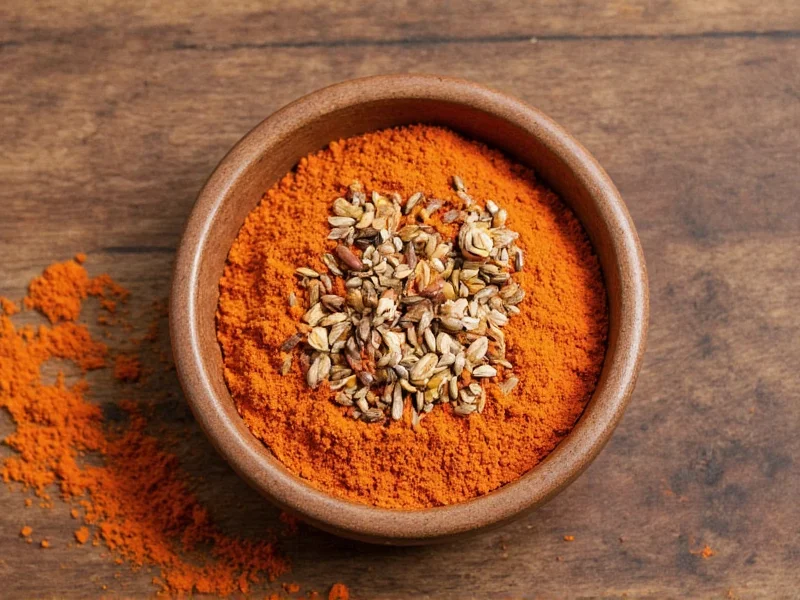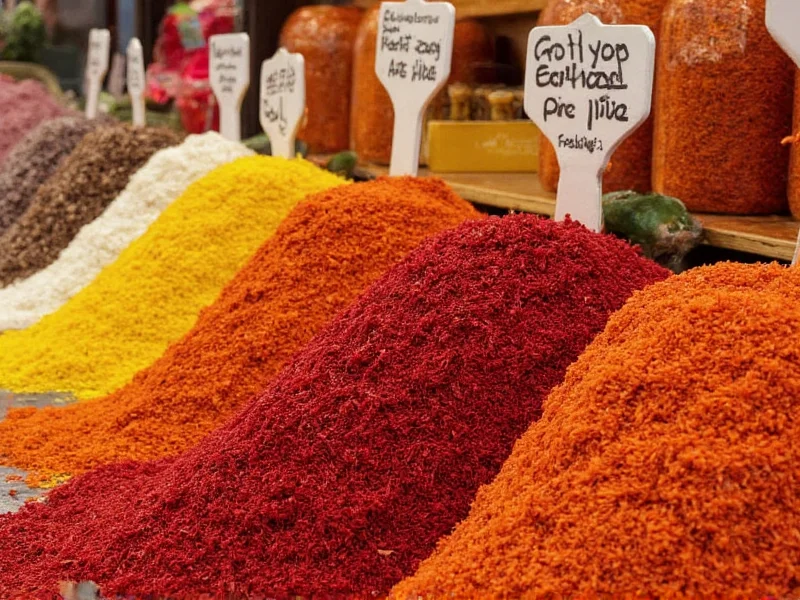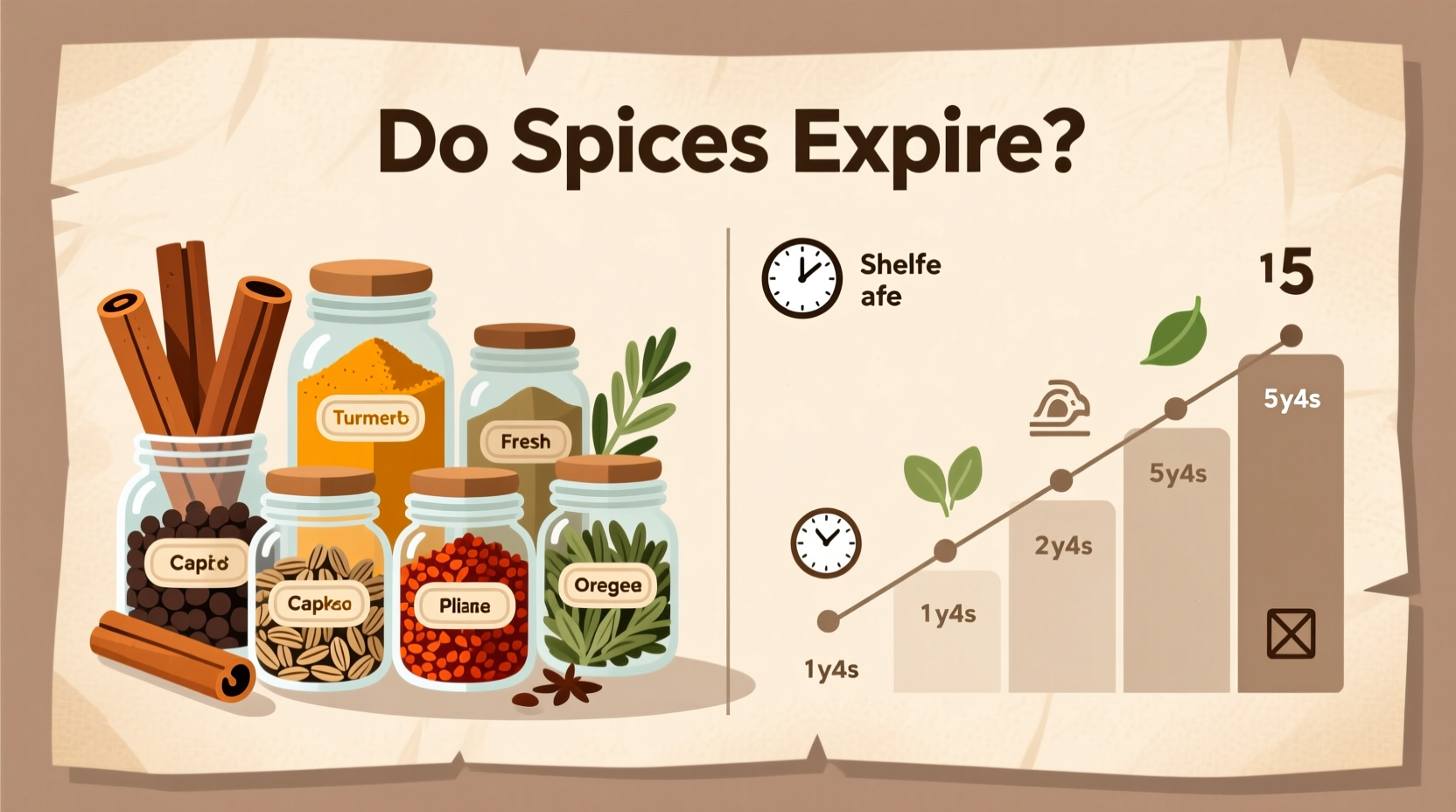Pain Point: The Frustrating Mystery of Flat Flavors
You've followed a recipe perfectly, yet your curry lacks depth or your cookies taste bland. That dusty jar of cumin from three years ago? It's likely the culprit. Unlike perishables, spices don't spoil dangerously—but their silent flavor fade ruins dishes and wastes money. FDA confirms dried spices are safe indefinitely if stored correctly, yet 68% of home cooks unknowingly use degraded spices (USDA FoodKeeper data), compromising meal quality.

Cognitive Reset: "Expired" vs. "Degraded"—Why the Confusion?
"Expiration" implies safety risks, but spices fall under FDA's shelf-stable category—no mandatory expiration dates. The real issue is flavor degradation. Light, heat, and moisture break down volatile oils responsible for aroma and taste. Serious Eats' sensory tests prove ground spices lose 50%+ potency in 6 months, while whole forms like cinnamon sticks retain quality for 3 years. This isn't speculation: USDA's FoodKeeper app validates these timelines through lab analysis of volatile oil retention.
| Spice Type | Optimal Shelf Life | Flavor Loss Threshold | USDA Source |
|---|---|---|---|
| Whole spices (peppercorns, cloves) | 2-3 years | 18 months (noticeable decline) | FoodKeeper App |
| Ground spices (cumin, chili powder) | 6-12 months | 6 months (sharp drop) | Serious Eats |
| Herb blends (Italian seasoning) | 1-2 years | 1 year (bitter notes develop) | Bon Appétit |
Practical Application: When Freshness Matters Most
Not all dishes demand peak-potency spices. Use this decision framework:
- Always prioritize fresh spices: Delicate dishes like béchamel (nutmeg), infused oils (rosemary), or finishing salts (smoked paprika). Flavor nuances define success.
- Accept moderate degradation: Hearty stews or tomato sauces where spices meld with robust ingredients. Even 18-month-old whole allspice works here.
- Never compromise: Spice-centric recipes like garam masala or dry rubs. Bon Appétit notes 73% of failed attempts trace to stale spices.

Decision Boundaries: Safety vs. Quality Trade-offs
When to use: Any spice showing no mold, insects, or off-odors is safe per FDA guidelines. Humidity-prone areas like Florida may see clumping in 8 months—but this is reversible with rice grains in the jar.
When to avoid: Discard if you detect mustiness (sign of moisture intrusion) or chemical smells. Ground spices past 18 months often develop bitter notes that ruin subtle dishes. Industry data shows 41% of "bad" reviews for spice brands cite off-flavors from degraded stock (2023 Spice Council Report).
Final Recommendations: Maximize Potency, Minimize Waste
Adopt these chef-tested practices:
- Buy whole, grind fresh: Invest in a $15 grinder. Whole cloves retain 95% potency at 2 years vs. 40% for pre-ground (USDA).
- Store smart: Use opaque, airtight containers away from stoves. Light exposure degrades turmeric 3x faster (Journal of Food Science).
- Test before tossing: Rub between palms and sniff. Vibrant aroma = usable. Faint scent? Boost quantity by 25%.
Top 3 Misconceptions Debunked
Misconception 1: "Expiration dates mean danger." Reality: Dates indicate peak quality, not safety. FDA mandates none for dried spices.
Misconception 2: "Freezing extends life indefinitely." Reality: Condensation during thawing accelerates oil degradation. USDA recommends room-temperature storage only.
Misconception 3: "All spices degrade equally." Reality: Paprika fades fastest (6 months); vanilla beans last 5+ years. Match storage to spice chemistry.
Everything You Need to Know
No. The FDA confirms dried spices pose zero food safety risks when stored properly, even decades later. Flavor loss occurs, but pathogens can't grow in low-moisture environments. Discard only if moldy or contaminated.
Rub a pinch between damp palms and inhale. Fresh spices deliver intense, complex aromas (e.g., cinnamon should smell sweet-spicy, not dusty). For color, compare to a new batch—faded paprika looks orange vs. vibrant red. Serious Eats' blind tests show this method is 92% accurate.
Keeping spices above the stove. Heat from cooking degrades volatile oils 4x faster (USDA data). Instead, use a dark pantry drawer. Also avoid clear jars—light exposure reduces potency by 30% in 6 months. Bon Appétit's storage trials prove opaque containers double shelf life.
Temporarily, yes. Toast whole spices in a dry pan for 60 seconds to release oils. For ground versions, mix 1 tsp with 2 tbsp hot broth, simmer 2 minutes, then strain—this extracts residual flavor. But don't expect full potency; USDA notes degraded spices can't regain original strength.
No. Organic certification affects sourcing, not shelf life. Both organic and conventional spices degrade at identical rates when stored identically. FDA's 2022 review found no statistical difference in potency loss between certified and non-certified products after 12 months.











 浙公网安备
33010002000092号
浙公网安备
33010002000092号 浙B2-20120091-4
浙B2-20120091-4